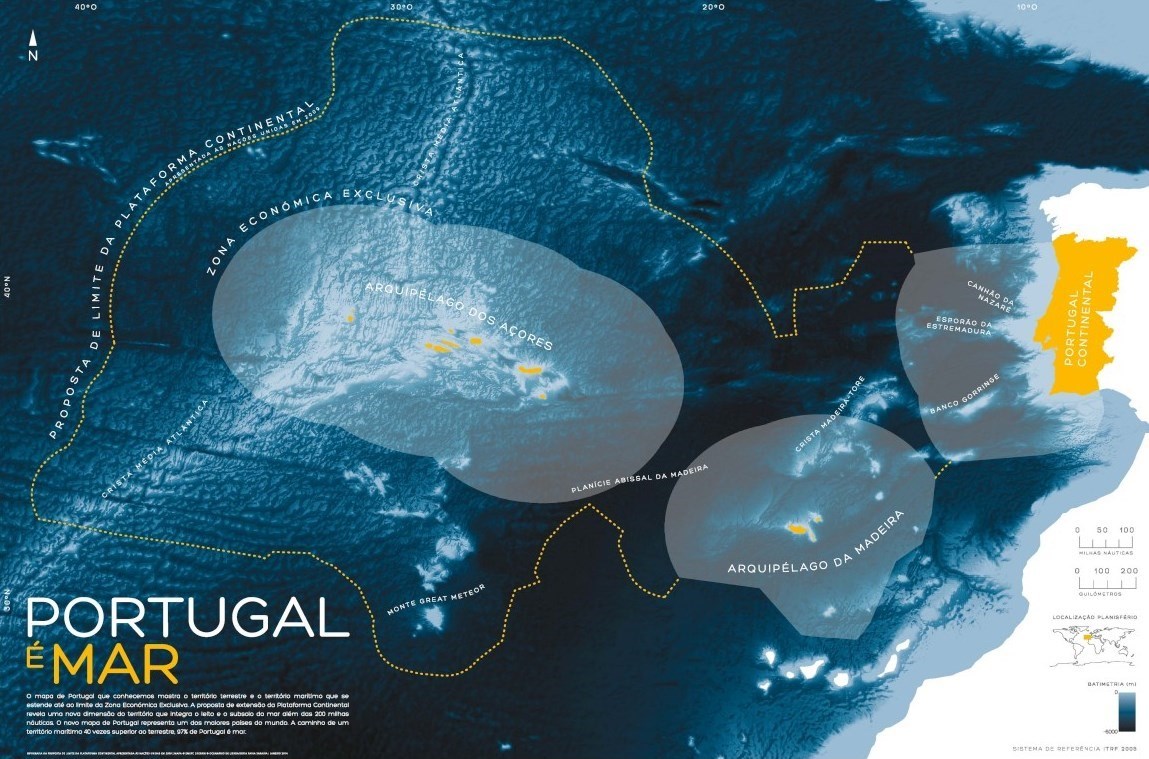North Atlantic Security and Defense Strategy (NASDS)
North Atlantic Security and Defense Strategy (NASDS)

Promoter: Centro de Investigação e Desenvolvimento do Instituto Universitário Militar (CIDIUM)
Partners:Centro de Investigação e Desenvolvimento do Instituto Universitário Militar (CIDIUM)
Instituto Universitário Militar (IUM)
Estado-Maior-General das Forças Armadas (EMFGA)
Norwegian Defence University College - Centre for Security Policy of the Norwegian Institute for Defence Studies - IFS (NO)
Reykjavík University - Institute of International and European Law - IIEL (ISL)
EEA Grants: 15 000,00 €
Total Amount: 17 324,00 €
Grace Code: PT-BI043
Programme:What did this initiative focus on?
The "North Atlantic Security and Defence Strategy (NASDS)" initiative aims to investigate the issues related to the security and defence of maritime space and maritime routes from the Arctic Ocean to the North Atlantic, including the control of search and rescue (SAR) areas through autonomous unmanned systems, and to develop a joint defence and security strategy in this maritime space.
Maritime areas under the sovereignty or jurisdiction of Portugal, as defined in the United Nations Convention on the Law of the Sea (UNCLOS), include inland waters, territorial sea, contiguous zone, exclusive economic zone (EEZ) and continental shelf.
The total area of inland Portuguese waters is 6,508 km2 on the mainland, 6,082 km2 in the Azores archipelago and 825 km2 in the Madeira archipelago. The extension of the Portuguese territorial sea, considering all parts of the territory, is of approximately 50.957 Km2, of which 16.460 Km2 correspond to the part of the continent, 23.663 Km2 to the part of the archipelago of the Azores and 10.834 Km2 to the part of the archipelago of Madeira.
According to article 33 of UNCLOS, the coastal State exercises jurisdiction over the territorial sea, that is 12 nautical miles, preventing and combating crime in this space. The contiguous zone, on the other hand, extending from the external limit of the territorial sea up to 24 nautical miles and integrated in the EEZ, which counts 200 nautical miles from the baseline, is not part of the Maritime Public Domain.
The search and rescue region defined for Portugal does not derive from UNCLOS, but from the 1979 International Convention on Maritime Search and Rescue (SAR).
In total, Portugal is responsible for ensuring this service within a geographical area of approximately 5,754,848 km2, of which 572,914 km2 correspond to the Search and Rescue Region (SRR) of Lisbon (Mainland and Madeira) and 5,181,934 km2 to the SRR Santa Maria (Azores).
Portugal, in accordance with article 76(8) of UNCLOS, submitted a request in 2009 to extend the limits of the continental shelf beyond 200 nautical miles to 350 miles off the coast.
This proposal increases its territory by 2.15 million km2, bringing its continental shelf to a total of around 4 million km2, making it the eleventh largest continental shelf in the world and the third largest in the European Union.
As regards the partners in this project, their governments signed in 2011 the Agreement on Cooperation in Aeronautical and Maritime Search and Rescue in the Arctic, a legally binding instrument promoted by the Arctic Council, in force since January 2013.
Added to this SAR responsibility is the challenge of security and international law of the polar routes.
These challenges do not only affect the Arctic countries, but also affect all Atlantic countries and those belonging to the European Economic Area and are largely due to the melting of Arctic ice and the consequent increase in the months of navigability in the region. Added to this is Russia's claim to exclusive territorial jurisdiction over large portions of the North Pole, the militarization of the region through the reopening of bases that belonged to the Soviet Union, and the facilitation of Chinese goods transport to Europe, known as the "New Silk Road".
In this initiative it is intended that CIDIUM researchers vesit the foreign partners, whose teams are led by Professor Dr Bjarni Már Magnússon and Professor Dr Katarzyna Zysk, to exchange views with colleagues and to plan a lasting collaboration.
In spring 2022 it is planned to organise an international seminar dedicated to defence and security strategy in the North Atlantic Ocean to be held at the IUM premises in Lisbon. The call for papers will be open to researchers, military personnel, professionals, experts and authorities from Portugal, Iceland and Norway. Representatives from third countries, namely from the Arctic Council, the EU and NATO member states, will also be able to participate and attend. The conference proceedings will be gathered in a scientific publication published by the IUM.
The end result of the initiative will be the publication and dissemination of a scientific publication with the results of the seminar and research activity and containing recommendations for mitigating risks direct to political and military leaders and policy makers. The publication and launch are scheduled for autumn 2022, in conjunction with the European Researchers' Night, promoted by the European Commission and framed within the Marie Skłodowska Curie Actions (MSCA) under the Horizon Europe framework programme, with the Annual Meeting of Research & Development in Military Sciences organised by IUM, and with the annual conference of the International Society of Military Sciences (ISMS), which, in 2022, will take place at the IUM premises.
This is a great opportunity to boost civil-military scientific research, promote collective security and defence and support the Portuguese Armed Forces, for the benefit of the whole country and its partners and allies.
Related Content